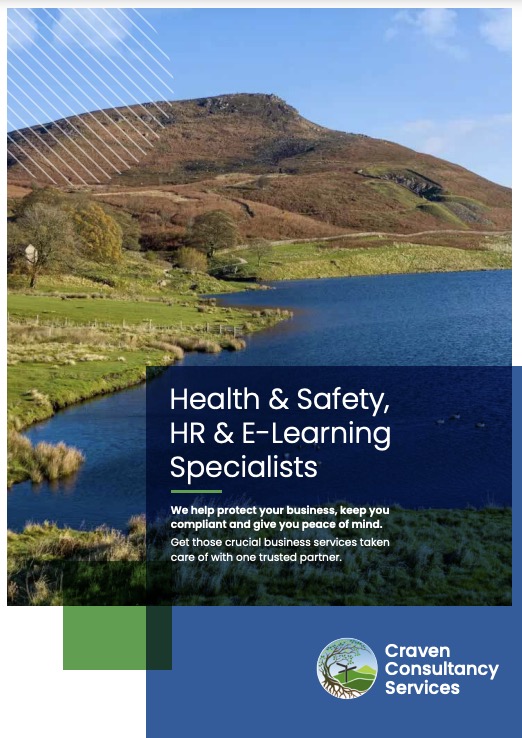HR is probably the one department globally that faces the brunt of rumours, biases and misunderstandings in the workplace. We don’t always have a positive reputation. In fact, many employees hate them or avoid them at all costs and only view them as an occasional intermediary.
Of course, we have to take time to understand the business, its strategy and its objectives. For example, if they wanted to increase profit by ten per cent over the next five years, we would need to know how they will resource that; what kinds of skills do they need; have they already got the talent in-house; are their employees engaged?
The HR remit is huge. For every plan or project in the business strategy, there will be an element that HR has to support, whether it’s recruitment, talent management, appraisals, training … we touch so many different areas.
If you’re in leadership, you’re in HR.
HR Myth #1 – HR Is Out to Get You!
The scary stories around this teach us not to trust the HR boogeymen. It has been told that any information shared with HR folks can (and will) be used against you. Usually, this myth is formed when a few employees have had bad experiences with those dreadful HR people. People think we are spies for the leaders. Not true. We provide feedback at all levels—meaning we talk about talent and how people are performing to leaders. We often point out things that the leader might not see. We take the temperature of the organization and help leaders understand if there are issues in the culture that they may not see. Our job is to understand what is going on with people. We ask questions and make observations... That can look like the CIA to some, I guess!
MYTH #2 — HR Will Become Obsolete Soon
Some professionals think that HR departments will become obsolete because newer artificial intelligence platforms and self-service tools will be able to screen and interview job applicants, keep employees informed, keep track of employee information, and much more.
However, newer investments in HR technology will make these departments and professionals even more necessary, as they will still be needed to keep the “human intelligence” in HR while using newer and more advanced tech.
HR Myth #3 – You can’t give a “bad” reference
Aside from exceptional limited sectors there is actually no obligation for an employer to provide a reference. However, if a reference is provided then it should be fair, accurate and not misleading. When providing a reference, employers should stick to evidenced based facts, otherwise they could find themselves open to legal challenge from either the ex- employee or new employer for misleading them. For this reason, many employers choose only to provide what are known as “tomb-stone” references, which literally only sets out the basic confirmation of employment details.
HR Myth #4 – HR Merely Listens to Employee Complaints
This myth seems to be perpetuated by poor HR practitioners and those who have had a bad experience with them. Some employees can feel that HR merely pays them lip service when listening to complaints, but that’s not how the process should be functioning.
Even small complaints should be investigated where possible as they can compound into much larger issues. It’s important to note complaints too in case documentation is required at a later date.
HR Myth #5 – They Exist Solely to Protect the Company
While it’s true that HR practitioners work to document and provide policies that protect the employer, they can also benefit the employee too. Where an employee highlights workplace issues like discrimination, bullying or unfair treatment, they can work to solve this.
HR Myth #6 – They Can’t be Strategic
When companies bring HR into the boardroom and use their insights, it can harness the full power of understanding their people. They have the potential to act strategically and weigh in on important decisions using real evidence.
HR Myth #6 – HR is ‘Fluffy – Why HR is no longer the pink and fluffy discipline but central to business strategy
How things have changed! When I first started in HR two decades ago, it was generally seen as rather pink and fluffy – a nice-to-have but a nonessential part of the business. Back then many in HR had been secretaries and it was seen largely as an administrative role.
But, then, progressive companies started to recognise the importance of having an HR strategy and putting their staff at the centre of the business. Now, the heads of HR departments work alongside the operational board to make sure that all initiatives are implemented – HR planning and strategy really drives the business.
HR Myth #7 – You can’t dismiss an employee for poor performance
You can dismiss any employee for poor performance (under the Employment Rights Act the term is “capability”). Ultimately use your capability or performance management process and work that through to the end.
When dismissing for poor performance, it is essential to consider the employee’s wider situation to ensure that discrimination is not an issue. This will involve making sure that the employee’s poor performance is not in some way linked to a protected characteristic.
HR Myth #8 – You can’t contact employees when they are off sick
Employers have a duty of care towards their employees and that duty doesn’t end when they leave the workplace at the end of the day. In fact, this duty extends to employers making sure that they “keep in touch” and maintain regular contact with their employees when they are signed off to see how they are doing.
Regular contact with a sick employee should be compassionate and focus on their wellbeing not just enquiring when they will return to work.
HR Myth #9 – Employees with under two years’ service have no rights
Employees with under two years’ service can’t bring ordinary unfair dismissal claims. They can, however, bring claims for breach of contract, for holiday pay, discrimination, maternity rights, whistle-blowing, protective awards, and most other employment claims. Some of these rights (such as discrimination) begin even before the employment relationship has started.
HR Myth #10 – Employers have to give time off for bank holidays
Employees have no right to bank holidays off, or to be paid more for working them. This entirely depends on the contract between the employee and employer. Full-time employees are legally entitled to 5.6 weeks holiday a year and bank holidays can be counted as part of those 5.6 weeks, but they don’t have to be.













